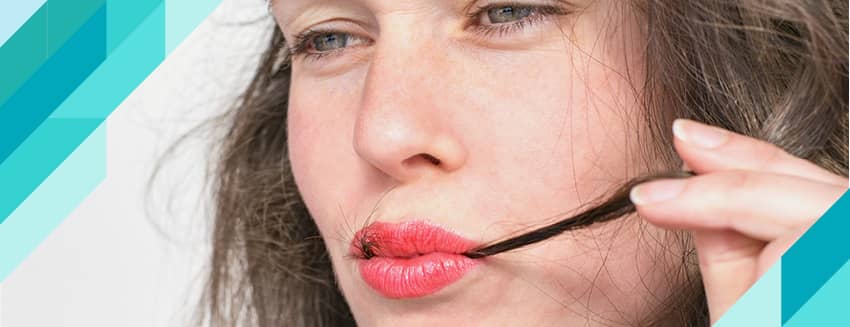
Trichophagia, also called Rapunzel syndrome or hair eating disorder, is a recurrent psychological disorder in which a person plucks, eats or swallows hair. It is often associated with trichotillomania, which is characterized by repetitive hair plucking behavior. It is also known as a type of impulse control disorder, and although the exact cause is unknown, research has shown that behavioral disorders such as trichophagia can be caused by a variety of factors, including psychological problems.
Psychologically based health problems can occur in the form of different disorders such as anxiety, stress, depression and anxiety, as well as damage to various tissues in the body and repetitive behaviors. This condition, which can arise from psychologically based health problems, can impair a person's physical and mental health. Since hair eating can lead to a type of intestinal disorder, the person should be treated both physically and mentally.
What are the Symptoms of Rapunzel Syndrome?
People with Rapunzel syndrome may involuntarily pluck and swallow their hair. While such situations can cause discomfort in the person's gastrointestinal system, some serious complications can occur. Common symptoms of trichophagia can be listed as follows:
- Partial hair loss
- Nausea and vomiting
- Stomach and abdominal pain
- Constipation or diarrhea
- Weight loss or inability to gain weight
- Bad breath
- Wounds that appear on the skin
This condition, which can cause discomfort in the intestinal system, can also cause serious life-threatening health problems.
What Causes Rapunzel Syndrome?
The causes of rapunzel syndrome, known as impulse control disorder, are not fully known. Research on this subject shows that genetic predisposition, environmental factors and some psychological disorders can lead to this condition. In addition, various risk factors that can cause trichophagia can be listed as follows:
Genetic Factors: It is thought that genetic factors may be effective in behavioral disorders such as hair eating disorder. The risk of occurrence is higher in people whose family members have similar disorders.
Age Factor: According to research, impulse control disorders such as trichophagia are most common in childhood and adolescence.
Gender Factor: Hair and eating disorders are more common in women than in men.
Psychological Factors: People with various psychological disorders such as mood disorders, obsessive-compulsive disorder (OCD), stress, anxiety and depression may develop behavioral disorders such as trichophagia.
The person often engages in hair-eating behavior without realizing it and is often preceded by extreme stress. The person often engages in these behaviors when they are alone, and therefore, this problem can be difficult to detect.
Rapunzel Syndrome Treatment
Rapunzel syndrome, also known as hair eating disorder, is often associated with various psychological disorders. For this reason, patients should be physically and mentally evaluated by a specialist doctor. Afterwards, the underlying causes of the disease should be determined and treatment should be planned.
Since hair eating behavior can cause various problems in the gastrointestinal system, early detection can prevent possible complications. For this reason, a physical examination and additional imaging methods may be applied at the request of the specialist. If this condition persists for a long time, some stomach disorders may occur, and surgical intervention may be required at this stage.
In addition, in cases where various psychological problems such as underlying stress, anxiety, anxiety, depression or obsessive-compulsive disorder occur, psychotherapy and, if necessary, drug treatments can be applied. In this context, Cognitive Behavioral Therapy or various forms of psychiatric assessment are performed by a psychologist or psychiatrist.
